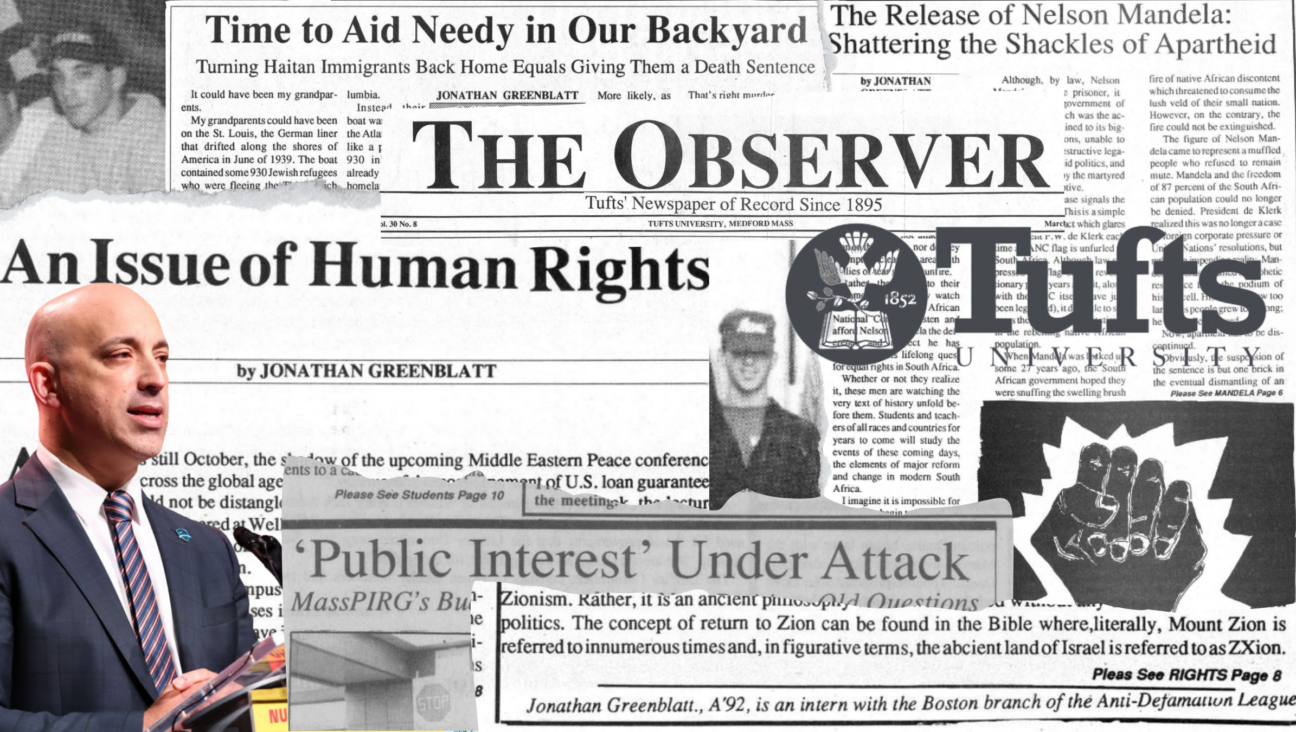In Israel, Love is Not Love

Image by iStockphoto
In his characteristically crisp manner, President Barak Obama summed up the recent US Supreme Court decision acknowledging the right of gays to marry: . The Constitution is about individual liberty. And change is possible.
Good for you, citizens and residents of the United States of America. An important job, well done. And while this Constitutional declaration is monumental, for us Israelis, it’s a teaser, giving us hope and making us feel hopeless at the same time. Over here, love is not love. Our Basic Law of Liberty and Dignity privileges liberty, but not in the area of marriage. And change with respect to marriage — at least from the formal legal perspective — appears almost impossible.

Image by Talia Weisberg
In Israel, love is not love because love is circumscribed by Israeli marriage and divorce laws. Those laws incorporate religious kinship rules and enforce them on Israeli citizens in accordance with their respective religious communities, but irrespective of their religious beliefs or consciences. Since all religious traditions define marriage as taking place between a man and a woman, Israel prohibits all gay couples in Israel from marrying. Furthermore, under Torah Law, which is the religious rule applicable to Israeli Jews, male homosexuality is an “abomination.” As it is written: “If a man lies with a male as with a woman, both of them have committed an abomination.” (Lev. 18:3.) Recently, the Rabbinate annulled a marriage of a transsexual Jewish man with a Jewish woman, because, according to Torah Law, the man was still a woman. In Israel, love is not love because Israel not only prohibits gay marriage, it also prohibits heterosexual, interfaith marriages. Under Torah Law, a Jew cannot marry a non-Jew. As it is written: “Do not intermarry with them. Do not give your daughters to their sons or take their daughters for your sons” (Deut. 7:3) (see also, Ezra 9:1-2). This also means that Israel won’t allow Jews to marry converts whose conversions are not recognized by the State Rabbinate – like Reform and Conservative converts, for example. The State also bars Jews from marrying “lapsed” converts whose conversions have been repealedby the State Rabbinate because the converts did not adhere to Torah commandments — halakhic admonitions against such revocations, notwithstanding.
In Israel, love is not love because, in addition to prohibiting gay marriages, banning interfaith marriages, and preventing Jews from marrying Reform, Conservative, or “lapsed” converts, Israel bars heterosexual Jewish couples from marrying if their relationship is prohibited under Torah Law. Thus, in Israel, the State forbids distant in-law relations from marrying. A Jewish man cannot marry his ex-wife’s’ sister if his ex-wife is still alive (Lev. 18:18). Nor can he marry his brother’s widow (Lev. 18:16) if his brother had had children. Ironically, if his brother did not have children, a man would be required, under Israeli law, to marry or “release” his widow (Deut. 25:5-6.)
And, as if all the above is not enough, love is not love in Israel because the State restricts the marriages of all innocent children born of relationships forbidden under Torah Law. Thus, the State precludes innocent Israeli children born of adulterous relations (Lev.18:20), incestuous blood relations (Lev. 18:9), as well as distant in law relations—whether forced or voluntary—from marrying other “kosher” Jews. These innocent children are deemed mamzerim and can only marry other mamzerim or converts. If they have relations with kosher Jews, their progeny, forever, are considered mamzerim who cannot marry other kosher Jews under Israeli law.
Love is also not love in Israel if a man is a priest — a “cohen” — and he fell in love with a divorcee or a convert. Again, following Torah Law, Israel prohibits a priest from marrying a divorcees (Lev. 21:7) or a female convert (whom under biblical Torah Law is assumed to have been a promiscuous “harlot” before conversion (Lev. 21:7). Nor, in turn, is love love for the female child of a priest and a divorcee or a convert, if she wants to marry another priest; such a marriage is also prohibited by the State.
And then there’s the matter of women who divorce jealous husbands. For those women, love is not love in the State of Israel. Israel will not allow a woman to marry her paramour or her ex-husband if, while married, her ex-husband suspected that she was having an adulterous relationship, or even just an “unseemly” one, with another man.
In short, there is no marriage equality in Israel from the formal, legal perspective of the State. Israeli state apparatuses discriminate against, prevent, or restrict, the marital rights of gays, interfaith couples, heterosexual couples who are distant in-laws, innocent Jews who are the progeny of prohibited relations, priests, converts, divorcees, and more. If any of the above turn to the State Rabbinate for any reason, they can be officially blacklisted. (As of 2008, about two thousand were.) Since the founding of the state, the Knesset has only made things worse: it has consistently legislated all the above discrimination into Israeli statutes in various ways, including into its Basic Laws, which make specific exceptions for Torah Law in the interest of the Jewishness of the State. The Attorney General’s Office thinks its job is to protect the Rabbinate and the laws of the Knesset, turning its back on individual citizens. The Supreme Court of Israel largely rubber stamps the activities and opinions of the Rabbinate, Knesset, and Attorney General’s Office, ferreting its eyes about to avoid responsibility for what is transpiring on their shift.
All this is the bad news. But the good news is — or perhaps it’s the bad news, depending on your perspective — that love indeed is love. And we Israelis are a pugnacious, stubborn lot who, with great creativity, find ways to confirm this and dance rings around our state restrictions. This, of course, is not good enough. Eventually, one would pray, the State will fall in line, dancing to the end of love.
Dr. Susan Weiss heads the Center for Women’s Justice in Jerusalem.

I hope you appreciated this article. Before you go, I’d like to ask you to please support the Forward’s award-winning journalism this Passover.
In this age of misinformation, our work is needed like never before. We report on the news that matters most to American Jews, driven by truth, not ideology.
At a time when newsrooms are closing or cutting back, the Forward has removed its paywall. That means for the first time in our 126-year history, Forward journalism is free to everyone, everywhere. With an ongoing war, rising antisemitism, and a flood of disinformation that may affect the upcoming election, we believe that free and open access to Jewish journalism is imperative.
Readers like you make it all possible. Right now, we’re in the middle of our Passover Pledge Drive and we still need 300 people to step up and make a gift to sustain our trustworthy, independent journalism.
Make a gift of any size and become a Forward member today. You’ll support our mission to tell the American Jewish story fully and fairly.
— Rachel Fishman Feddersen, Publisher and CEO
Join our mission to tell the Jewish story fully and fairly.
Only 300 more gifts needed by April 30
























